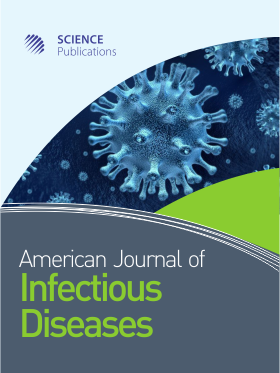Inhibition of Panton-Valentine Leukocidin Toxin Induced Neutrophil Cell Lysis by Vancoplus in Methicillin-Resistant Staphylococcus Aureus Infections
- 1 Venus Medicine Research Centre, India
Abstract
Pantone Valentine Leukocidin (PVL) is a cytotoxin associated with virulence of Methicillin-Resistant Staphylococcus aureus (MRSA). This study was undertaken to analyze the prevalence of PVL among MRSA strains and to study the effect of adjuvants (L-lysine, L-arginine, Ethylenediamine Tetraacetic Acid (EDTA) as well as drugs on PVL induced neutrophil cell lysis. Further, in vitro activity of Vancoplus, vancomycin, linezolid, teicoplanin and daptomycin against PVL positive MRSA strains was analyzed. A total of 67 Staphylococcus aureus strains collected were screened for the prevalence of methicillin resistance and PVL by Polymerase Chain Reaction (PCR). Effects of various adjuvants and drugs on PVL induced neutrophil cell lysis were studied by Lactate Dehydrogenase (LDH) assay. Antibiotic susceptibility was conducted using Clinical and Laboratory Standards Institute (CLSI) guidelines. Our results showed that of 67 clinical isolates, 71.6% (48/67) isolates were confirmed to be MRSA. Of these MRSA strains, 75% (36/48) isolates were observed to be PVL positive. Pus swab (86.3%; 19/22) had more proportion of PVL than urine (75%; 6/8); sputum (70%; 7/10) and blood (50%; 4/4). When diverse adjuvants alone (L-lysine, L-argine and EDTA) or in combinations were tested on PVL induced neutrophil cell lysis, 10 mM L-lysine alone and combinations of 10 mM L-lysine +10 mM EDTA and 100 mM L-arginine +10 mM EDTA produced the highest 78.7±7.1, 92.6±8.8 and 93.4±6.3%, respectively, inhibition of LDH activity (known marker of cell lysis). Further, when Vancoplus reconstituted with solvent produced 93.1±6.4% inhibition of LDH activity whereas other comparator drugs produced only 12.7±2.4 to 30.5±3.1% inhibition of LDH activity. Vancoplus appeared to be the most efficacious against 94.4% of the MRSA strains with MIC values 0.25 to 4 µg mL-1. The susceptibility of other drugs vancomycin, linezolid, teicoplanin and daptomycin against MRSA varied from 22.3 to 77.8% of isolates with MICs 0.5 to 32 µg mL-1. This study provides new insight into the prevalence of PVL toxins among MRSA. Results of this study showed that Vancoplus is the most active against MRSA and it additionally protects the neutrophil cells from PVL toxins and prevents from sequels of MRSA infections caused by these cytotoxins.
DOI: https://doi.org/10.3844/ajidsp.2014.154.163

- 3,703 Views
- 2,326 Downloads
- 2 Citations
Download
Keywords
- Adjuvants
- Clinical Isolates
- Methicillin-Resistant Staphylococcus Aureus
- Panton-Valentine Leukocidin
